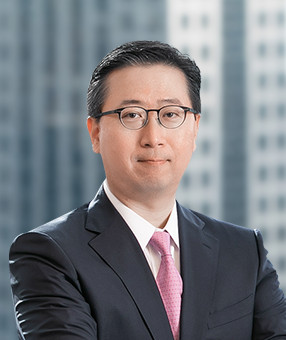The Korean Supreme Court issued a decision on October 27, 2022 concerning in-company subcontracting at Hyundai Motor Company (“HMC”). The Court found that there was no illegal worker dispatch involving certain subcontracted workers of “Tier 2” vendors – i.e., vendors did not enter into contract with HMC – who performed logistics tasks for HMC.
“Illegal Worker Dispatch” in the Korean Employment Context
By way of background, companies in Korea may, subject to certain limitations, use workers who are not their own regular employees. Two of the most common approaches are via “worker dispatch” and “subcontracting”, as further discussed below.
-
Worker Dispatch
A company may engage in worker dispatch subject to two requirements under the law: (i) the company seeking to use dispatched workers must enter into a contract with a licensed manpower supply company, and (ii) the dispatched workers perform services/work that is within the list of 32 permitted job/work categories specified in the relevant presidential decree, and for a maximum of two years. In case of a worker dispatch arrangement which fulfills the relevant legal requirements, the company using the dispatched workers (service recipient company) may supervise and control the work of such workers as if they were the company’s regular employees. It is worth mentioning that manufacturing does not fall within the scope of the above-mentioned 32 permitted work categories.
-
Subcontracting
The second approach is to use “subcontracted workers”, who are employees of a third party with whom the service recipient company has entered into a subcontracting arrangement with to perform certain tasks (e.g., providing goods or services). There is no limitation on the type of work that may be performed by the subcontracted workers and there is no limitation on the length of their service. However, subcontracted workers cannot be subject to supervision and control of the service recipient company over the work they perform. If the service recipient company exercises supervision and control over the subcontracted workers, this will be deemed to constitute “illegal worker dispatch.”
Case Background
Certain subcontracted workers of Tier 2 vendors filed claims against HMC, alleging that HMC engaged in illegal worker dispatch (i.e., exercised supervision and control) and that said subcontracted workers should be deemed as regular employees of HMC. The high court had found that the subcontracted workers should be deemed regular employees of HMC.
The Korean Supreme Court overturned the high court’s decision, finding that the relationship between HMC and the employees of certain Tier 2 vendors – which entered into subcontracting agreements with HMC’s parts suppliers or other Tier 1 vendors providing integrated logistics services to HMC – who performed parts sorting and line feeding tasks, constituted lawful subcontracting arrangements.
Key Takeaways
It is worth noting that this decision still affirmed the high court’s ruling that there was illegal worker dispatch with respect to the subcontracted workers of Tier 1 vendors engaged in indirect processes as well as the subcontracted workers of Tier 2 vendors who were not engaged in parts sorting and line feeding. In this regard, it is difficult to definitely infer that the Korean Supreme Court overruled the high court’s decision which found there was illegal worker dispatch between HMC and its Tier 2 vendors.
However, this decision may be regarded as highly significant in the following respects:
-
The Korean Supreme Court recognized that parts logistics in the automobile industry – by virtue of its assortment of activities comprised of transportation, storage and unloading, among other things, that create value add – constitutes a type of logistics activity that stands separate and apart as a line of business activity from other tasks performed in the automobile industry.
-
HMC’s provision of information pertaining to parts sorting does not constitute an exercise of supervision and control by the service recipient company but rather can be interpreted as a provision of information needed to perform the subcontracted tasks.
Following the 2015 Korean Supreme Court decision, which enumerated the five-factor test for distinguishing illegal worker dispatch from legitimate subcontracting arrangements, this October 27, 2022 decision represents the first major decision rendered by the Korean Supreme Court in approximately eight years.
Moreover, this decision overturned the high court’s decision and concluded that the use of subcontracted workers for transportation and logistics tasks – for which in-company subcontracting is widely used in Korea – does not constitute illegal worker dispatch and thus is deemed as legitimate subcontracting arrangements. We anticipate that this decision will have a significant impact on the future direction of illegal worker dispatch cases pending before the Korean courts.
Kim & Chang’s litigation experts in its Labor and Employment Practice Group were instrumental in obtaining a positive outcome in this key decision as counsel for HMC in charge of developing the litigation strategy for this challenging case. Our team enabled the client to mount an effective argumentative stance before the Korean Supreme Court by drawing on an in-depth analysis of applicable facts and law concerning subcontracting arrangements, and coming up with persuasive arguments showing that work-related instructions given by the service recipient company to the subcontracted workers can have different legal implications depending on the actual substance of the subcontracted work and the related work processes, as well as that parts logistics in the automobile industry is an independent line of business that requires expertise which should be distinguished from other types of tasks.
[Korean Version]
Related Topics
#In-Company Subcontracting #Illegal Worker Dispatch #Legal Update









